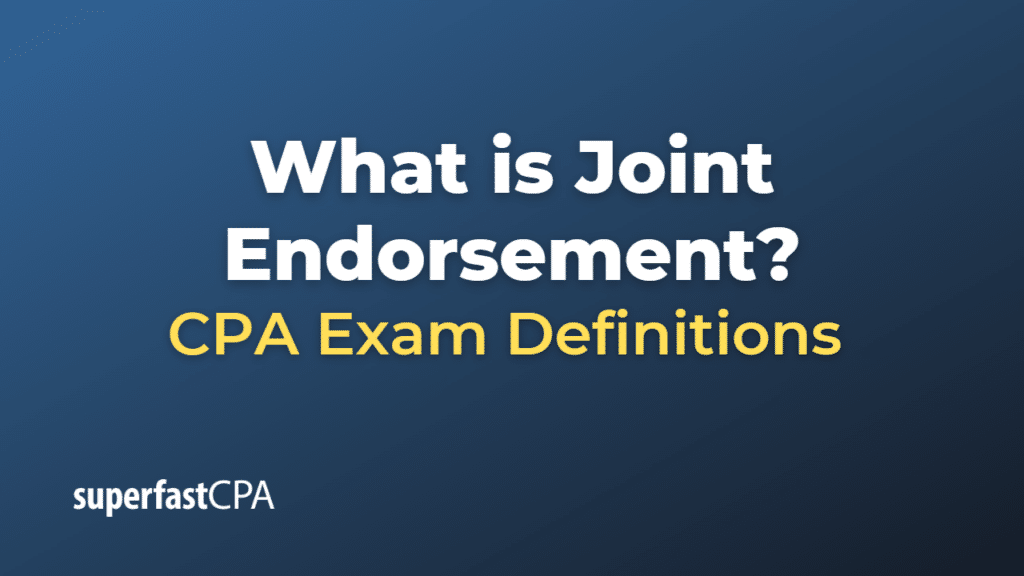Joint Endorsement
Joint endorsement typically refers to the signing by two or more parties on a negotiable instrument, like a check, indicating their agreement to the terms of the contract. This concept is most commonly used in the context of financial and banking operations.
For example, if a check is made payable to two individuals or organizations jointly – let’s say, “John Doe AND Jane Doe” – then the check requires a joint endorsement, meaning both John Doe and Jane Doe must sign (endorse) the check before it can be cashed or deposited.
Similarly, if a contract or an agreement involves more than one party, a joint endorsement might be required, meaning all parties must agree to the terms and conditions stipulated in the contract.
Joint endorsements provide an additional layer of security because they require the approval of all parties involved. This helps ensure that all parties agree to the use of the funds, reducing the risk of fraud or dispute.
It’s important to note that if a check is made payable to multiple parties with an “OR” between the names (for example, “John Doe OR Jane Doe”), then only one of the listed individuals needs to endorse the check. This is not a joint endorsement, but a standard endorsement by any one of the payees.
Example of Joint Endorsement
Here’s a common example involving a joint endorsement of a check:
Let’s say John and Jane Doe have a joint home mortgage. After some years, they decide to refinance their home with a different lending institution, which results in a lower interest rate and ultimately, they receive a refund due to overpayment from their previous lender.
The previous lender issues a refund check made payable to “John Doe AND Jane Doe” because they both jointly owned and paid the mortgage. In this case, both John and Jane Doe must endorse (sign) the check before it can be cashed or deposited into a bank account. This is a joint endorsement, and it’s required because both names are on the check and connected by “AND”.
This joint endorsement ensures that both parties agree on the handling of the funds and reduces the chance of one party cashing the check without the knowledge or consent of the other party.













